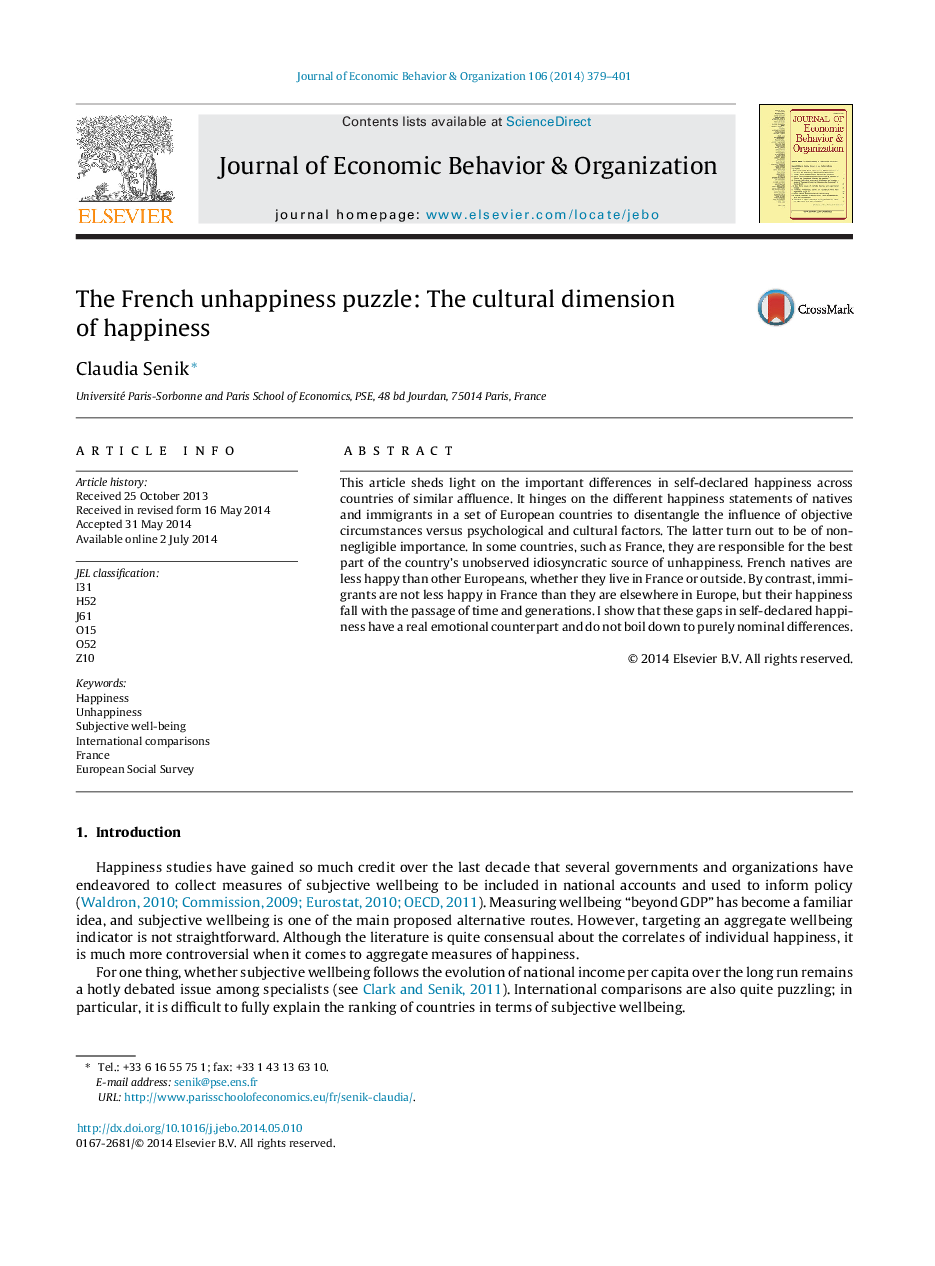| کد مقاله | کد نشریه | سال انتشار | مقاله انگلیسی | نسخه تمام متن |
|---|---|---|---|---|
| 7243504 | 1471657 | 2014 | 23 صفحه PDF | دانلود رایگان |
عنوان انگلیسی مقاله ISI
The French unhappiness puzzle: The cultural dimension of happiness
ترجمه فارسی عنوان
پازل ناخودآگاه فرانسه: بعد فرهنگی شادی
دانلود مقاله + سفارش ترجمه
دانلود مقاله ISI انگلیسی
رایگان برای ایرانیان
کلمات کلیدی
ترجمه چکیده
این مقاله در مورد تفاوت های مهم در شادی خود اعلام شده در سرتاسر کشورهای ثروت مشابهی روشن شده است. این بر مبنای اظهارات مختلف شادی بیگانگان و مهاجران در مجموعه ای از کشورهای اروپایی است تا از تأثیر شرایط عینی در مقابل عوامل روانی و فرهنگی جدا شود. دومی به اهمیت غیر قابل توجهی تبدیل شده است. در بعضی از کشورها مانند فرانسه، آنها مسئول بهترین بخشی از ناخوشایند ناشناخته ناشناخته کشور هستند. بومیان فرانسوی نسبت به اروپایی های دیگر کمتر خوشحالند، چه در فرانسه و چه خارج. در مقابل، مهاجران در فرانسه نسبت به سایر نقاط اروپا مفرط نیستند، اما خوشبختی آنها با گذشت زمان و نسل هاست. من نشان می دهم که این شکاف ها در شادی خود اعلام دارند، یک همتای عاطفی واقعی دارند و به تفاوت های کاملا متفاوت اسمی تقلیل نمی یابند.
موضوعات مرتبط
علوم انسانی و اجتماعی
اقتصاد، اقتصادسنجی و امور مالی
اقتصاد و اقتصادسنجی
چکیده انگلیسی
This article sheds light on the important differences in self-declared happiness across countries of similar affluence. It hinges on the different happiness statements of natives and immigrants in a set of European countries to disentangle the influence of objective circumstances versus psychological and cultural factors. The latter turn out to be of non-negligible importance. In some countries, such as France, they are responsible for the best part of the country's unobserved idiosyncratic source of unhappiness. French natives are less happy than other Europeans, whether they live in France or outside. By contrast, immigrants are not less happy in France than they are elsewhere in Europe, but their happiness fall with the passage of time and generations. I show that these gaps in self-declared happiness have a real emotional counterpart and do not boil down to purely nominal differences.
ناشر
Database: Elsevier - ScienceDirect (ساینس دایرکت)
Journal: Journal of Economic Behavior & Organization - Volume 106, October 2014, Pages 379-401
Journal: Journal of Economic Behavior & Organization - Volume 106, October 2014, Pages 379-401
نویسندگان
Claudia Senik,
